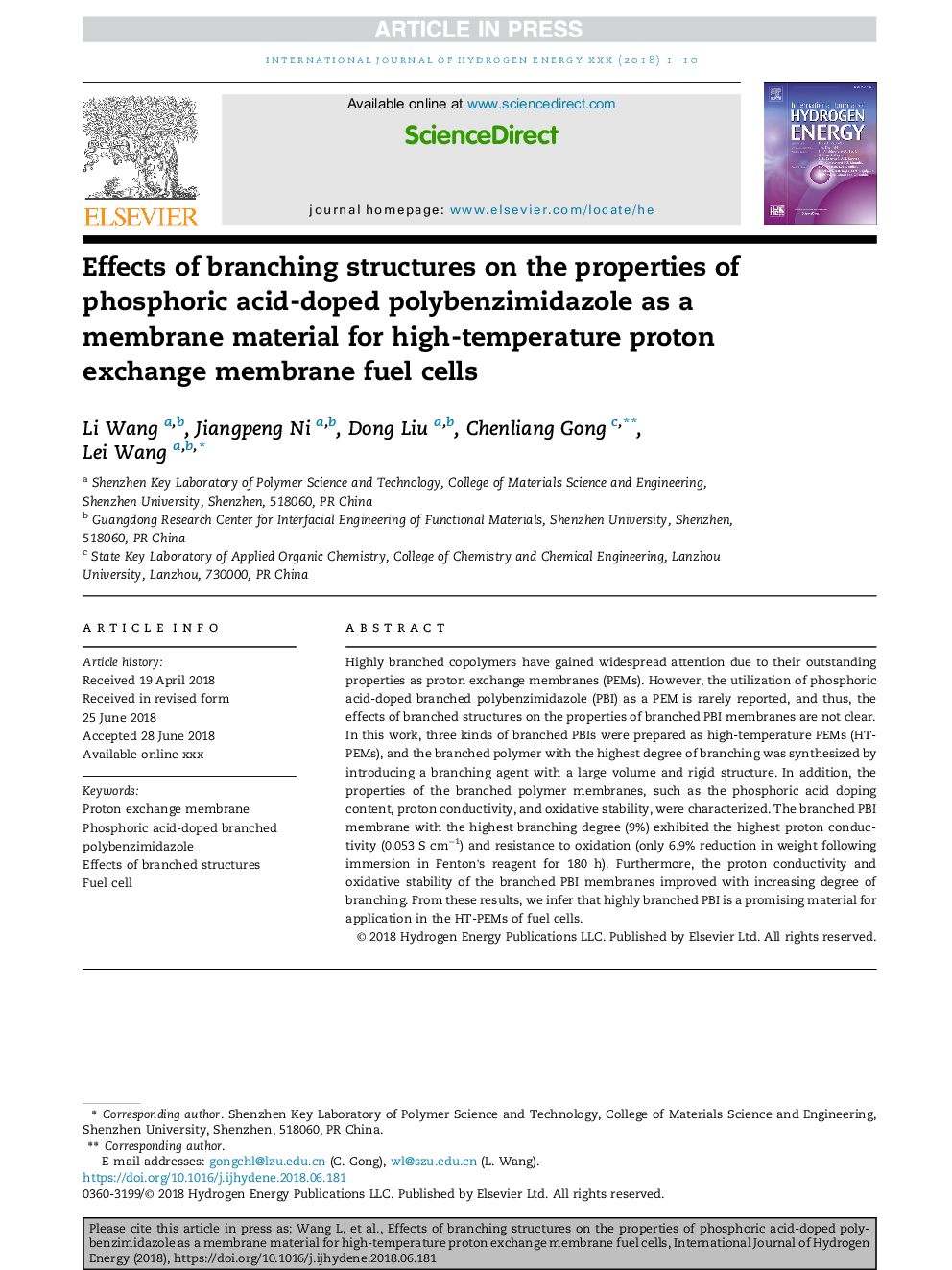| Article ID | Journal | Published Year | Pages | File Type |
|---|---|---|---|---|
| 8942834 | International Journal of Hydrogen Energy | 2018 | 10 Pages |
Abstract
Highly branched copolymers have gained widespread attention due to their outstanding properties as proton exchange membranes (PEMs). However, the utilization of phosphoric acid-doped branched polybenzimidazole (PBI) as a PEM is rarely reported, and thus, the effects of branched structures on the properties of branched PBI membranes are not clear. In this work, three kinds of branched PBIs were prepared as high-temperature PEMs (HT-PEMs), and the branched polymer with the highest degree of branching was synthesized by introducing a branching agent with a large volume and rigid structure. In addition, the properties of the branched polymer membranes, such as the phosphoric acid doping content, proton conductivity, and oxidative stability, were characterized. The branched PBI membrane with the highest branching degree (9%) exhibited the highest proton conductivity (0.053Â SÂ cmâ1) and resistance to oxidation (only 6.9% reduction in weight following immersion in Fenton's reagent for 180Â h). Furthermore, the proton conductivity and oxidative stability of the branched PBI membranes improved with increasing degree of branching. From these results, we infer that highly branched PBI is a promising material for application in the HT-PEMs of fuel cells.
Keywords
Related Topics
Physical Sciences and Engineering
Chemistry
Electrochemistry
Authors
Li Wang, Jiangpeng Ni, Dong Liu, Chenliang Gong, Lei Wang,
